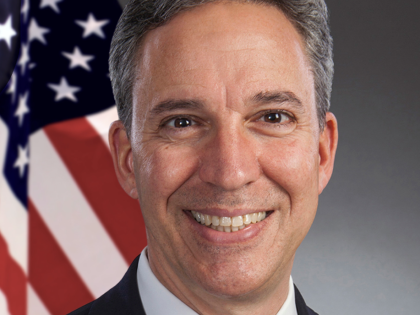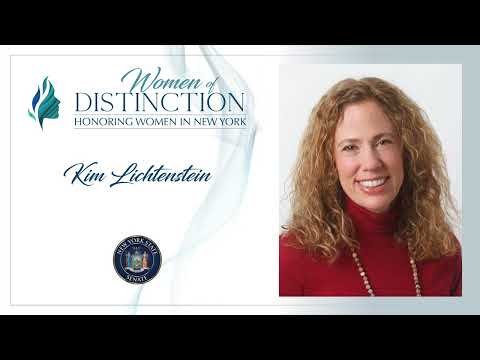
From the Desk of Senator Jack M. Martins
Jack M. Martins
May 6, 2013
What’s GENDA?
Most of us know that nothing is perfect. This includes government and more specifically, the laws it creates. Every elected official comes to this realization sooner or later, even if they don’t have the guts to tell you so. You could take any law on any given issue and there will always be pros and cons. What may be perfectly fair and just to some, may leave others feeling nothing but the negative impacts.
Yet there are plenty of people who believe that some form of utopian government can be achieved in which all of our most complex problems can be resolved through legislation and unfortunately, there are plenty of politicians who see no advantage in disagreeing.
That seems to be what’s happening in our State Capitol right now as lawmakers debate the passage of the Gender Expression and Non-Discrimination Act (GENDA). At its core, it seems an understandable desire to extend civil rights people already enjoy. Discrimination based on a person’s sexual orientation is already illegal, as are certain other forms of discrimination predicated on age, color, creed, national origin, sex, marital status, disability or military status. This bill would make “gender identity or expression” an additional civil right category, protecting those who are transgender or those who don’t conform to typical male and female norms in dress and behavior from discrimination or harassment.
But the wide-ranging bill is also fraught with complications, especially as it pertains to those persons who consider themselves “gender non-conforming”. This is defined as someone whose appearance or behavioral characteristics do not “match-up” to typical perceptions of gender. To the chagrin of its advocates, the bill is even widely known as the “bathroom bill” because it would allow these individuals the right to use whichever public accommodations they are most comfortable with, at the time. In essence, it would allow those with male anatomies to freely use ladies rooms and utilize female locker rooms and vice-versa.
While I understand these individuals do face challenges of social stigma in using lavatories traditionally assigned to their sex, most people I surveyed don’t see the alternative as a solution – and frankly, neither do I. Separate bathrooms for the sexes exist for quite valid reasons, and the practice is widely accepted in most modern societies. The distinction is primarily based on the actual physical attributes of males versus females and not on any particular individual’s feelings about those attributes. By accommodating these sensibilities and passing this law, we would most surely be disregarding the sensibility and comfort of the majority of others.
Key among the concerns is the issue of children in public restrooms and parents who object to having their children exposed to the opposite sex in that setting. Another issue is that such a policy would also obviously open the door for sexual predators who would like nothing more than the opportunity to stalk those situations freely without any meaningful means of policing the legitimacy of their presence in the opposite sex’s bathroom or locker room. Keep in mind that such individuals would not have had to have undergone a sex change, nor would they be obligated to justify their presence with anything more substantial than their own feeling that their “gender identity” at that time was better served by entering the restroom, locker room or shower of the opposite sex.
How would we be expected to police the veracity of that sentiment and, if valid, what about the comfort of others sharing the restroom? This simply makes no sense to me and while I would love for everyone to feel comfortable, it seems nearly impossible to resolve this to the satisfaction of all involved. In fact, some states have already passed similar legislation and have been left facing quixotic challenges. In Washington State, a 45-year old male caused an uproar when guaranteed the right to fully undress in the female locker room of a local college. As a result, the college was forced to install a “privacy curtain” so he could continue using the facility. What if he didn’t wish to have the curtain because he sees it as a form of segregation? I don’t see how this gentleman is any more comfortable in a room full of offended and resentful women as he would be in a men’s locker room. Furthermore, I believe the rights these women have to their expectation of privacy has been unfairly negotiated away. We have seen other situations where gender neutral bathrooms have had to be created in schools for first-grade boys who identify as girls. What are the options?
What worries me most in all of this is the perception among some, that we can legislate away complex social disagreements like these. In fact, the Assembly voted 91-51 just last week to pass GENDA again – the sixth time it has done so in the past six years. It has yet to be taken up in the Senate.
But the truth is there isn’t a government anywhere that could create a law that could fairly resolve this to everyone’s satisfaction, which brings me back to where I started this week’s column. Government cannot fix all of life’s conundrums. We cannot legislate what gender people identify with any more than we can control people’s perceptions, reactions, or comfort levels in light of those identities. Some issues are just personal in nature and government simply does not have the ability to overcome that.
Rather, the responsible lawmaker must try to strike a balance, ultimately choosing what he or she believes to be the greatest good or the least worst alternative. That’s not always easy, but in this case, I think it best we leave well enough alone.
Share this Article or Press Release
Newsroom
Go to NewsroomFill a Backpack Program
June 25, 2024


